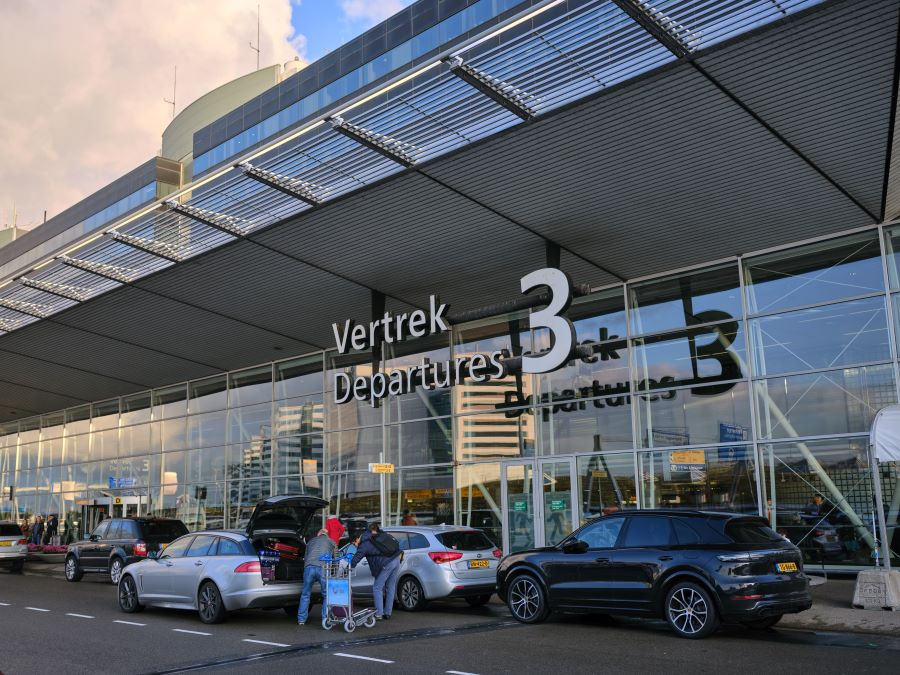
The steps which are being taken by the airport to restore their position align with sustainability expectations within the industry. Schiphol will focus on innovation with regards to digitalisation as well as sustainability.
A Schiphol spokesperson says: “Our reorganisation programme, Project Reset, helped us improve as a company and adapt to our much-changed operating environment.

Discover B2B Marketing That Performs
Combine business intelligence and editorial excellence to reach engaged professionals across 36 leading media platforms.
“Project Reset has led us to reprioritise our investment portfolio and operational expenditures and to make structural improvements to mitigate the anticipated longer-term impact of Covid-19 on demand for air travel.”
Significant developments relating to the airport’s sustainability efforts include the implementation of electric ground power units. Regardless of whether a plane is parked at the gate or on the apron, electricity is needed to ensure that the systems on board continue to function.
Traditionally, special diesel generators have been used in this regard but the airport has adopted a new method in order to reduce emissions and improve air quality. Currently, 73 of the 128 gates at Schiphol are using fixed electric power units for planes and the airport aims to install more so that all 128 gates have access to this technology.
Schiphol collaborated with industrial company ITW to develop an electric and portable generator, the electric ground power unit (e-GPU), to replace the diesel generators which were traditionally used.

US Tariffs are shifting - will you react or anticipate?
Don’t let policy changes catch you off guard. Stay proactive with real-time data and expert analysis.
By GlobalDataIn addition, new technology was also implemented in the form of TaxiBots which also contribute to the reduction of emissions and improvements to local air quality.
The TaxiBots are special towing vehicles that make it possible for aircraft to taxi in a sustainable manner. Sustainable taxiing entails taking aircraft to and from the runway through use of the Taxibot which means aircraft engines can be largely switched off during taxiing.
The spokesperson says: “Royal Schiphol Group’s ambition is to operate the world’s most sustainable, high-quality airports. We continue to invest in safety, quality, sustainability and innovation.
“For example, Schiphol’s capacity-related investments include steps to improve Schiphol’s landside access road system, the construction of a new pier and the redevelopment of Lounge 1.
“Furthermore, we are doubling the Quebec taxiway to further improve safety and efficiency. In all our investments, sustainability and circularity are embedded.”
The Schiphol terminal is surrounded by taxiways that serve departing and arriving aircraft. While almost all of the taxiways have two lanes, the ring they are supposed to form is incomplete at the moment. Quebec is currently a single lane taxiway between the Kaagbaan Runway and Zwanenburgbaan Runway.
Developing Quebec as a dual taxiway will entail building another aircraft bridge over the A4 motorway. When it is completed, the new system will enhance management of air traffic control and remove wait times for aircraft.
Schiphol has been focused on reducing natural gas and energy consumption for a long time, with the airport running on 100% Dutch wind energy since 2018.
Most of the terminal, most piers and a number of offices have a heat and cold storage which stores energy in the form of heat and cold in the ground. As a result, Schiphol uses less natural gas to heat and cool these buildings.
“Recently we joined the movement to lower the heating, by dropping the temperature at Schiphol by one degree in the terminal and at the head office.
“Because of the war in Ukraine, we are willing to become less dependent on natural gas, which is also good for the environment and saves money,” says Schiphol’s spokesperson.
The amount of money saved by the Schiphol Group, as a result of their efforts to lower heating, will be donated to Giro 555 which is a Dutch donation fund for the war in Ukraine.
Schiphol’s spokesperson adds: “Aviation’s biggest challenge is the climate crisis and the pace at which the sector can be made more sustainable. It can be done, but it needs to be done faster.
“The aviation sector needs to have achieved net zero by 2050 – that commitment is clear. But we need to move as swiftly as possible now, in these first few years.
Moving towards achieving net zero by 2050 will be possible through a combined effort from airlines, aircraft manufacturers, scientists and fuel producers. Schiphol expects to overcome the challenge of maintaining operations while also drastically reducing its environmental footprint.
Further sustainable aviation and innovation initiatives are expected during this year, as well as international activities and partnerships. The airport also hopes to capitalise on digitalisation, automation and big data trends which have been seen in the industry.
The changes that have been made at the airport will maximise the potential of Schiphol during times where there is increased hub competition. In addition, European Sky and Dutch airspace redesign will reduce CO2 emissions as accessibility to the airport via direct/shorter routes will be improved.





